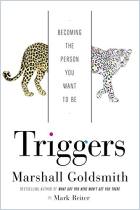
The Compromise Trap
How to Thrive at Work Without Selling Your Soul (Bk Business)
Recommendation
How do good people lose their moral compass? Elizabeth Doty interviewed business professionals and drew on her own experiences as a corporate consultant to find out. She concluded that some people fall into the “compromise trap,” yielding to unhealthy pressure exerted at even the best companies. Doty explains that you must develop personal resources that allow you to stay true to your values. She recommends finding a higher purpose, a beacon, to steer you away from making decisions that conflict with your beliefs. Doty’s “key concepts” and “individual and group activities” provide practical exercises for integrating her theories into your day-to-day behavior. getAbstract recommends this book if you’re feeling compromised, wrestling with a moral dilemma or seeking expertise in business ethics.
Summary
About the Author
Elizabeth Doty is the founder of WorkLore, a coaching and leadership development consultancy which specializes in helping leaders increase engagement, alignment and integrity by keeping their commitments real.
















Comment on this summary or Diskussion beginnen